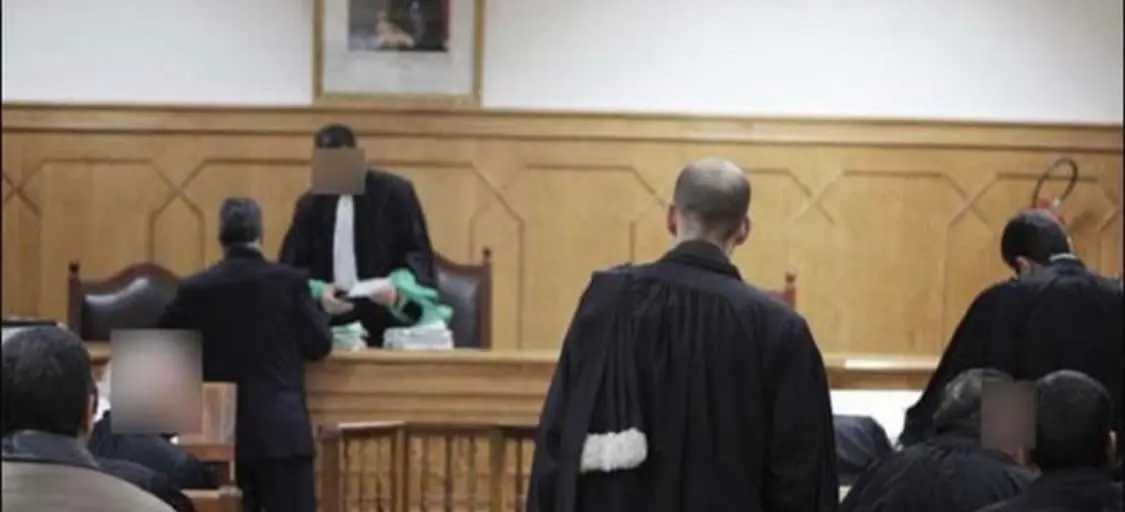Nietzsche once said, “he who has a why to live for can bear almost any how”. It is the motto that summarizes my thorough analysis of two memoirs written by Ahmed Marzouki and Viktor Frankl. Both suffered the repercussions of living in the direst conditions as prisoners in two hellish jails, Tazmamart and Auschwitz. Their biographies, ‘Tazmamart Cell 10’ and ‘Man’s Search for Meaning’ are considered in the prison literature field as testimonies on behalf of all missing people and survivors. I shall endeavor in this essay to make readers grasp the conclusions which both authors came to after going through long years of inhuman detention and utmost suffering.
Tazmamart Cell 10
In 1971, Marzouki was a student officer at the military school of Ahermoumou in the midst of the Meknes- Fez region. He was taken, along with hundreds of other classmates, to the town of Skhirat, located a few kilometers away from the capital Rabat for what he believed were military exercises, but later on, found out that he was in the mid of a coup d’Etat, one plotted by General Mohamed Medbouh and the director of the school, Lieutenant-Colonel Mhamed Ababou. After the coup failure, participants who were spared a death sentence, were condemned to remain in solitary confinement for a couple of years. Marzouki was sentenced to five years, but spent unjustly eighteen years in an inhuman detention center called Tazmamart.
For a very long period of time, the Moroccan authorities have denied the existence of the Tazmamart penal colony located in the middle of the desert, in the south of the country. However, fifty-eight officers and non-commissioned officers, infantrymen and airmen, were locked up there for taking part, for them most part of them without their knowledge, of two coup d’etat attempts, the first took place in July 1971 (Skhirat) and the second occurred in August 1972 (plot against the ‘King’s plane). After eighteen years of infernal jail time, when the doors to Tazmamart were unlocked, only twenty-eight of them had survived.
One of them was the prisoner who occupied cell number 10, Ahmed Marzouki. He was one of the 28th survivors that were able to miraculously survive their jail time. He described his cell “as a terrible dark grave, whose dimensions were 2.5 meters square.”
Man’s Search for Meaning
Due to his Jewish identity, Frankl, a psychiatrist working in Vienna, was sent to a concentration camp with his pregnant wife. He was shipped to several different camps, including the famous Auschwitz in Poland. The latter was a frightening nightmare for Jews during the second world war, since its residents did not only undergo the heartless Nazi guards, but also suffered from the repercussions of some fatal diseases they incurred due to the lack of food and medicine. Not to mention the unendurable work they had to deliver, all in a severely harsh cold weather, one which all prisoners were forced to go through daily in the Nazis camps.
In Auschwitz, detainees were fighting against numerous enemies in order to stay alive. They did all they could to manage the shortage of food, to lessen the deadening emotions and to keep looking younger and therefore be less likely to be executed under the pretext of being useless.
Save your mind before your body
Both memoirs assure that saving the body comes in the second position in the prison. Marzouki and Frankl were from those who kept working on their mental safety through staying away from negative thoughts and from emptiness. They kept themselves busy; Marzouki, for instance, went on a schedule with some prisoners. They were learning Quran orally. Moreover, one of the prisoners luckily smuggled a tiny radio which was their only platform to the world; so it provided them with the latest news once a week.
By contrast, Frankl kept himself alive by summoning up thoughts of his wife and the prospect of seeing her again, and by dreaming at one point of lecturing after the war about the psychological lessons to be learned from the Auschwitz experience.
Their experience witnessed a fundamental change in attitude towards life. They had to comprehend that it did not truly matter what they expected from life, yet rather what life expected from them. It is the power of “Now” that saved them from the power of recalling the past. They tried strongly to escape from their past to the present; they therefore surrendered to the fulfillment of the tasks which life constantly set for each individual during their imprisonment.
Freedom of Choice and Perseverance
In the Nazi concentration camps and Tazmamart, prisoners were cast into a physically and mentally primitive state of captivity. Hunger, lack of sleep, intense mental tension, and feelings of complete degradation robbed them of their dignity and sense of self. Although powerless to alter their circumstances and forced to adapt for survival, they still had choices. Marzouki and Frankl assert that a man could choose to fall victim to moral and spiritual decay, preying on fellow prisoners. Otherwise, he could choose to nurture and deepen his inner life.
It is in fact a great discovery when they concluded that at least there was something out of the control of the prison guards. It is their state of mind which remained free. Those who know how close the connection is between the state of mind of a man – his courage and hope, or lack of them- and the state of immunity of his body will fully understand that the sudden loss of hope and courage can have a deadly impact.
Liberation
It is needless to argue that after such long years of prison, especially for Marzouki who was literally buried in a dark cell for eighteen years, there was a fairly deep change in their lives. The term liberation was a dream that no one of them could dare to believe it. They had lost the ability to feel pleased and had to relearn it gradually. Being a psychiatrist, Frankl was able to describe and analyze plainly the situation from a psychological perspective. He called it “depersonalization” which made things for them appear unreal, unlikely, as in a dream. They feared from being woken up by the guard’s whistle; and therefore, their dream of freedom came to an end. Notwithstanding this, as Marzouki spent a bloody prolonged period, Frankl’s liberation was miles better than his. Jews were remarkably compensated for their loss and suffering, yet the twenty eighth survivors from Tazmamart had to struggle by their own. Few years after his ascension to the throne, Mohammed VI, the back-then new king of Morocco, established the Equity and Reconciliation Commission. The commission was founded with an aim to give justice to victims of human rights abuses in Morocco.
On the whole, both memoirs are significantly pregnant of wisdom and teachings that could make the difference in readers’ lives. I highly recommend Tazmamart Cell 10 and Man’s Search for Meaning to those who look to grasp the essence of life, merely because the biographies unveil incredible secrets about human nature with its limitless abilities. It illustrates that when survivors bore their suffering, it was a genuine inner achievement. It is this spiritual freedom, which makes life meaningful and purposeful.






